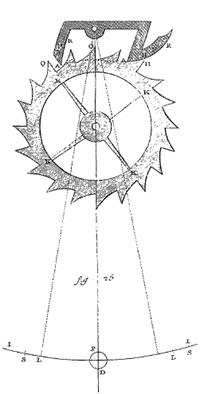"I prefer my coffees with an intensity of 6 in the morning when I wake up and 10 after eating."
"I only drink strong coffees."
These frequently heard remarks have raised an interesting point and highlighted the need to re-establish concrete benchmarks for comparing coffees. The various "strength" or "intensity" scales used by mainstream coffee brands were developed to guide consumers in their purchasing decisions. But what does this actually mean? Is it a marketing ploy or genuine information? When we say a coffee is full-bodied, what are we referring to? Its aromas, its roast level, or its caffeine content?
Variables - nf

We can assume that this intensity generally describes the strength of the flavor and the caffeine content. These two factors can be linked, as caffeine is largely responsible for the bitter taste of coffee. Nevertheless, it seems worthwhile to mention four specific variables that can nuance the strength of a coffee and alter our perception of it:
- The variety: if you're looking for a strong, high-caffeine coffee today, it's easier and more economical for a manufacturer to offer you Robusta (see article on the difference between Arabica and Robusta). This type of coffee is less interesting in terms of flavor, even though progress has been made recently. Thus, generally speaking, with major coffee brands, the higher the intensity, the higher the proportion of Robusta and the lower the flavor complexity.
- Roasting : It's possible to increase the bitterness of any coffee through roasting . A dark roast has the advantage of standardizing coffees towards a uniformly bitter taste, but also the disadvantage of... giving coffees a bitter and standardized flavor. When the bean is roasted too much, most of the other organoleptic qualities of green coffee —acidity, sweetness, umami, etc.—are lost in favor of the bitterness that all coffee drinkers are familiar with.
- Extraction parameters: depending on your extraction method (how you brew your coffee), the strength and caffeine content of your coffee can vary dramatically. The coffee-to-water ratio is crucial: if you brew too little water through a large amount of ground coffee, the water is likely to be concentrated with aromatic compounds, and vice versa. The type of coffee machine can also produce a radically different result: a filter coffee will be much less intense in flavor than an espresso, and even the texture will be different.
- Subjectivity: Coffee is an aromatically complex product, and there isn't just one type of intensity. We've become accustomed to bitterness, but coffee can also be (sometimes too) intensely acidic or sweet. For example, a very acidic coffee might seem strong to one person and mild to another who has set their intensity scale towards bitterness.
Therefore, you will never see a strength scale for Celsius specialty coffees , but rather a scale of expression: from the most conventional to the most complex. This scale seems fairer to us, as it is established based on different criteria that make each coffee a unique product:
A terroir : specific to a particular origin and variety of coffee, which gives it typical aromas
A process : harvesting, drying, fermenting the grains, developing a distinct aromatic profile
Roasting : more or less light, depending on the method of consumption (filter or espresso).

